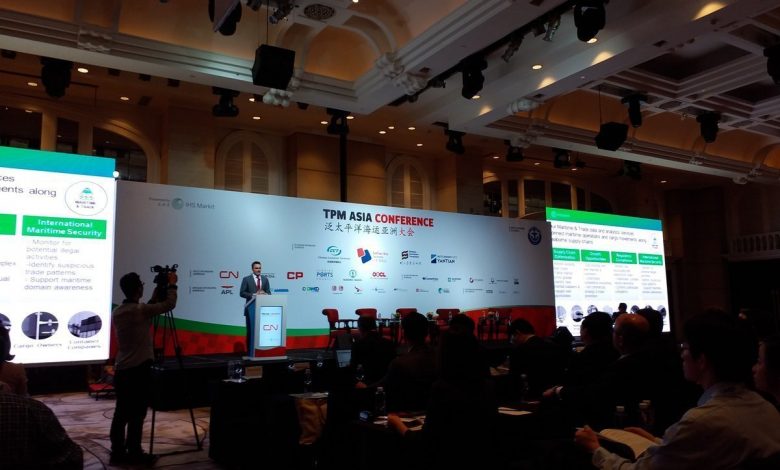Sombre outlook at TPM Asia

Pragmatism was very much the mood on the opening day of TPM Asia, the region’s leading container conference, with plenty of calls for restraint amid overcapacity concerns.
Keen to put all talk of a recovery in perspective was Zhang Ye, president of the Shanghai Shipping Exchange, who said it was too early to assume box shipping was back on track.
“The world economy recovery may speed up, but the fundamental issues in container shipping including overcapacity still haven’t been solved,” Zhang warned.
A total of 78 ships capable of carrying more than 14,000 teu each will be delivered between now and the end of 2019, Zhang noted, urging containerlines to desist from ordering any new mega ships.
Zhang revealed that the Chinese government is now working on some adjustments in terms of regulations for the container shipping market. It is likely, he said, that the government will loosen regulations in a few areas including market entry conditions and anti-monopoly assessments.
On the all important Chinese economy Xu Yating, China economist for IHS Markit, warned: “Appreciation pressure of the RMB may drag on exports growth and slowing fiscal spending and continuous financial market deleveraging increases downturn risk in the near future.”
Parash Jain, head of transport research for Asia Pacific at HSBC, told delegates he could see further consolidation hitting container shipping soon.
“For the next 12 months, we will see less ordering and further consolidation is needed in the industry,” Jain said.
In the afternoon session where discussion turned to container shipping alliances, Alan Murphy, CEO of SeaIntel Maritime Intelligence, predicte the sector would end up with between four and seven mega carriers, and the industry will not see a balance between supply and demand before 2020.
“To achieve this, some assumptions must be met, that includes continued high scapping levels, healthy global headhaul demand of 4-6%, no rate war for market shares, closing of Asia-Europe services in tune with deliveries and ambitious market entrants who may disrupt,” Murphy said.
“The consolidations in the shipping industry leave the BCOs less options,” said Nissim Yochai, vice president, transpacific trade at ZIM Integrated Shipping Service.
“We have to remember how has this consolidation has happened,” Yochai stressed.
Dr Jonathan Beard, executive director at consulting firm Arcadis, reckoned for lines, the potential productivity and unit cost savings from mega vessels are clear provided cargo volumes are assured, however the increased scale of vessels and increased concentration of alliance cargo volumes is creating considerable challenges for port operators.
“For the port and terminal operators, the productivity upsides from the rush to economies of scale are less clear, especially when the gains are set against the capex costs,” Beard said, adding that the continued subsidising and overcapacity of shipyards further clouds the picture with too many underpriced mega vessels looking for owners.
